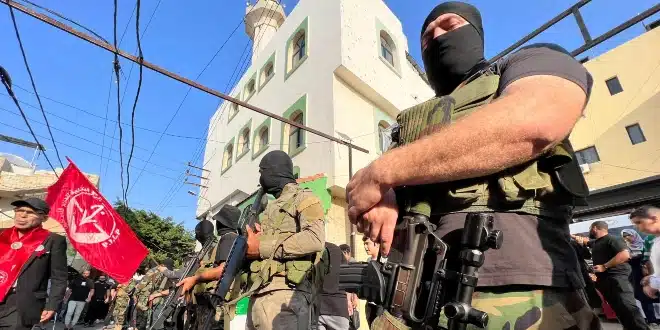During a high-level summit in Riyadh attended by Gulf leaders and U.S. President Donald Trump, Saudi Crown Prince Mohammed bin Salman publicly affirmed the kingdom’s support for the Lebanese government’s efforts to restore institutional authority and consolidate control over armed forces under state command. The statement marked a clear endorsement of Lebanon’s attempts to reinforce sovereignty and internal security amid ongoing tensions involving Hezbollah.
The crown prince emphasized Saudi Arabia’s backing for reforms led by Lebanese President Joseph Aoun and the national government, particularly initiatives aimed at strengthening civil institutions and ensuring that weapons are held exclusively by official state entities. His comments were made during the broader Gulf Cooperation Council discussions with the United States, which focused heavily on regional stability and conflict resolution.
Hezbollah’s Decline and the Implementation of Ceasefire Terms
Hezbollah, traditionally a powerful actor in Lebanese politics and security affairs, has seen its influence diminished following a recent conflict with Israel. The war resulted in significant damage to the group’s leadership and infrastructure. As part of a ceasefire arrangement, Hezbollah was instructed to relocate its fighters north of the Litani River, while Israel committed to withdrawing forces from southern Lebanon. However, Israeli troops have remained stationed in several zones classified as strategically important by Tel Aviv.
In the aftermath of the conflict, the Lebanese Armed Forces have gradually moved into areas vacated by Israeli troops and have begun dismantling Hezbollah’s operational structures. These actions are being conducted in accordance with United Nations Security Council directives that mandate the exclusive presence of Lebanese government forces and UN peacekeepers in southern Lebanon.
Despite the terms of the ceasefire, Israel continues to carry out airstrikes inside Lebanese territory, asserting that its operations are aimed at eliminating Hezbollah operatives and their infrastructure. These targeted military activities underscore the fragility of the ceasefire and the persistent threat posed by non-state armed actors in the region.
The Security Council resolution underpinning the ceasefire calls explicitly for the disarmament of all militias and armed groups not operating under formal state authority. It also tasks Lebanese forces and international peacekeepers with maintaining security in the south of the country. Saudi Arabia’s endorsement of Lebanese state efforts signals regional encouragement for the enforcement of these measures and the broader vision of returning national sovereignty to full civilian and military control.


